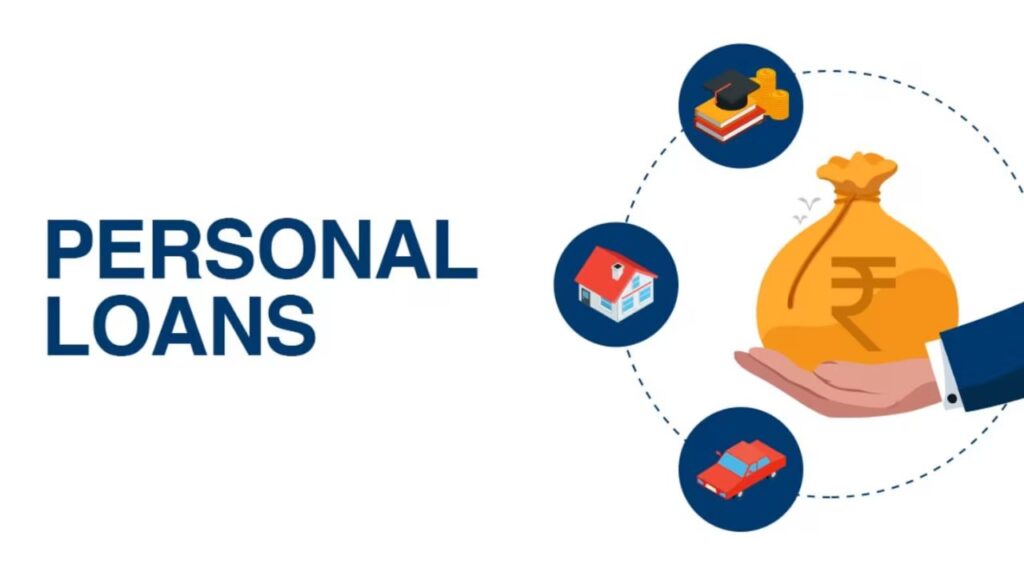Personal loans have become an increasingly popular way to obtain funds quickly, and private finance plays a significant role in this process. Personal loan private finance refers to loans provided by non-banking financial institutions or individuals, often with less stringent requirements compared to traditional banks. This alternative form of lending offers flexibility, especially for individuals who may not meet the eligibility criteria of mainstream lenders. In this article, we’ll explore the different aspects of personal loan private finance, helping you understand whether it’s a suitable option for your financial needs.
Types of Personal Loans in Private Finance
Secured vs. Unsecured Loans
Personal loans in the private finance sector can be broadly categorized into secured and unsecured loans. Secured loans require collateral, such as property or valuable assets, ensuring lower interest rates due to reduced risk for the lender. In contrast, unsecured loans don’t need collateral but often come with higher interest rates due to the increased risk to the lender.
Fixed vs. Variable Interest Rate Loans
When opting for a personal loan, you may come across fixed or variable interest rates. A fixed interest rate ensures consistent monthly payments, offering financial predictability. Conversely, variable interest rates may fluctuate over time based on market conditions, potentially leading to lower initial payments but higher overall costs in the long term.
Benefits of Personal Loan Private Finance
Quick Access to Funds
One of the primary advantages of private finance loans is the speed at which funds are disbursed. Unlike traditional banks which may take days or even weeks to approve a loan, private lenders often process applications swiftly, sometimes within 24-48 hours.
Flexibility in Usage
Private finance loans come with fewer restrictions on how you can use the funds. Whether you need to consolidate debt, cover medical expenses, or finance a home renovation, personal loans in the private sector offer the flexibility to meet various needs.
Eligibility Criteria for Personal Loan Private Finance
Credit Score Requirements
While traditional banks often require a high credit score, private lenders may be more lenient. However, a good credit score can still help secure better interest rates and terms.
Income and Employment Stability
Your income and job stability are crucial factors that private lenders assess when determining your loan eligibility. Demonstrating a steady income stream can significantly improve your chances of approval.
How to Apply for a Personal Loan in Private Finance

Documents Required
To apply for a personal loan in the private finance sector, you typically need:
- Proof of identity (passport, driver’s license)
- Proof of income (salary slips, bank statements)
- Proof of residence (utility bills)
- Credit report
Step-by-Step Application Process
- Research and compare private lenders.
- Gather necessary documents.
- Fill out the loan application form.
- Apply for review.
- Receive approval and sign the loan agreement.
- Get funds transferred to your account.
Interest Rates for Personal Loan Private Finance
Factors Influencing Interest Rates
Several factors influence the interest rates on personal loans, including your credit score, loan amount, repayment tenure, and the lender’s risk assessment. Private lenders often set higher interest rates than banks to mitigate the risk of default.
How to Get the Best Rates
To secure the best interest rates on a personal loan from a private lender:
- Maintain a high credit score.
- Compare offers from multiple lenders.
- Opt for a shorter repayment term.
Personal Loan Repayment Options
Lump-Sum Repayment
Some private finance providers offer a lump-sum repayment option, where you can repay the entire loan amount in one go. This is particularly useful if you receive a windfall or want to close the loan early to save on interest.
EMI (Equated Monthly Installments)
Most personal loans follow an EMI structure, where borrowers make fixed monthly payments. This repayment plan allows for better financial planning and ease of budgeting.
Also Read: How to Get a Personal Loan with a Low CIBIL Score in 2025
Risks Associated with Personal Loan Private Finance
High Interest Rates
Private loans often carry higher interest rates than traditional bank loans, especially for those with lower credit scores. This can lead to higher overall costs.
Loan Defaults and Consequences
Failing to repay a private loan can result in serious consequences, including damage to your credit score, legal action, and the loss of collateral in the case of secured loans.
Comparing Personal Loan Private Finance with Other Loan Options
Personal Loans vs. Credit Cards
While both personal loans and credit cards provide access to funds, personal loans generally have lower interest rates and fixed repayment schedules. Credit cards, on the other hand, offer revolving credit but can carry significantly higher interest rates if not paid off in full each month.
Personal Loans vs. Payday Loans
Payday loans are short-term, high-interest loans that can be easier to access than personal loans. However, they come with exorbitant interest rates, making personal loans a more affordable option for larger expenses.
Top Private Finance Providers for Personal Loans
Also Read: Apply for Instant Personal Loan Online Of Up To Rs. 40 lakh
Overview of Popular Lenders
Some of the most reputable private finance providers include:
- LendingClub
- SoFi
- Avant These companies offer a range of loan products with varying terms and conditions.
Comparison of Lending Terms and Conditions
When comparing private lenders, consider factors such as:
- Interest rates
- Repayment terms
- Fees and penalties
Legal Considerations in Personal Loan Private Finance
Regulatory Framework
Private loans are subject to varying degrees of regulation, depending on the country or state. It’s important to ensure that the lender you choose operates within the legal frameworks to protect your rights as a borrower.
Consumer Protection Laws
Be aware of consumer protection laws that safeguard you from predatory lending practices. Always read the loan agreement carefully and understand your rights before signing.
Tips for Managing Personal Loan Private Finance
Budgeting and Financial Planning
Effective budgeting is essential when taking on a personal loan. Ensure that you have a clear repayment plan in place to avoid defaulting on payments.
Avoiding Unnecessary Debt
It’s crucial to borrow only what you need and can afford to repay. Taking on excessive debt can lead to financial strain and long-term challenges.
FAQs about Personal Loan Private Finance
- What is the difference between private finance and bank loans? Private finance often offers faster approvals and more flexible criteria but may come with higher interest rates.
- Can I get a personal loan with bad credit? Yes, many private lenders cater to borrowers with poor credit, although at higher interest rates.
- How long does it take to get approved for a private finance loan? Approval times vary but are generally faster than traditional banks, often within 24-48 hours.
- Is there a prepayment penalty for private finance loans? Some lenders may charge a fee for early repayment, so always check the terms of your loan agreement.
- How much can I borrow with private finance? The loan amount depends on your creditworthiness, income, and the lender’s policies.
- Are personal loans taxable income? No, personal loans are not considered taxable income unless forgiven.
Personal loan private finance offers a viable alternative to traditional banking loans, especially for those seeking quick access to funds or with less-than-perfect credit. However, it’s essential to weigh the risks and benefits, compare lenders, and manage your loan responsibly to ensure a positive borrowing experience.
